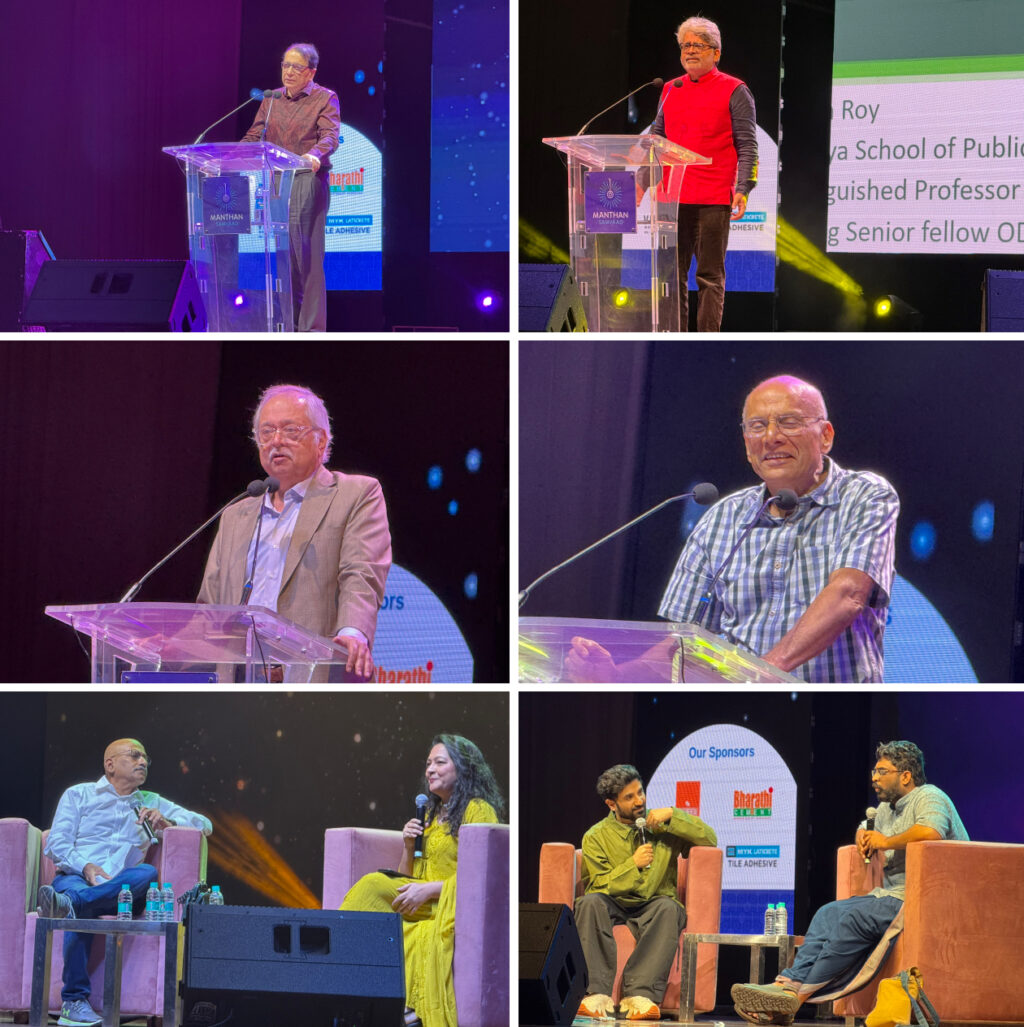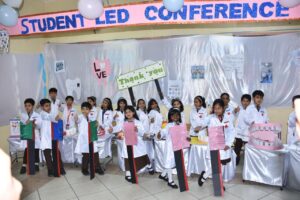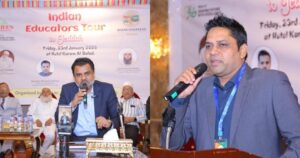
By: Syed Zia ur Rahman, YaHind.Com
Hyderabad, October 2, 2025 – On Gandhi Jayanti, the 13th edition of Manthan Samvaad 2025, hosted by the non-profit Manthan Foundation at Shilpakala Vedika, Madhapur, brought together India’s finest minds for a day of vibrant discourse. Under the ethos of “Open Minds, Open Doors,” the free, all-day forum drew students, professionals, and activists to engage in candid discussions on foreign policy, press freedom, social inequality, science, human rights, history, and artistic expression, set against Hyderabad’s monsoon ambiance.
The event began with the national anthem and a heartfelt address by M.R. Vikram, co-founder of Manthan, who paid tribute to his late co-founder Ajay Gandhi. Reflecting on Manthan’s journey since 2005, Vikram emphasized its commitment to fostering non-partisan dialogue. “In the spirit of Gandhi Jayanti, we gather to listen, debate, and strengthen our democratic fabric,” he said, setting an inclusive tone for the day.
Geopolitics and Strategic Balance
Defence analyst Pravin Sawhney, editor of FORCE magazine, opened with “India in the New Geopolitical World of 2025,” cautioning against India’s growing reliance on the United States. Advocating a balanced foreign policy, he highlighted India’s roles in BRICS and the Shanghai Cooperation Organisation (SCO), particularly vis-à-vis China. “The Global South is rising in stability, while volatility grips many developed nations. India must navigate this multipolar world with strategic patience,” he urged, sparking discussions on regional security.
Tackling Social Inequality
Economist Prof. Rathin Roy of Kautilya School of Public Policy addressed “South India: Challenges Posed by Next Phase of Transformation.” Despite South India’s higher GDP, Roy noted persistent social backwardness and caste-based discrimination nationwide. “Targeted policies and decentralized growth are critical to bridge these gaps,” he said, prompting exchanges on equitable development.
Defending Civil Liberties
Senior advocate Colin Gonsalves, founder of the Human Rights Law Network, spoke on “Human Rights Violations and the Decline of the Supreme Court.” Highlighting State overreach and the detention of activists without fair trials, he warned, “Judicial independence is under threat, risking constitutional decay.” He urged citizens to stay vigilant, igniting debates among civil society representatives.
Advancing Scientific Temper
Molecular biologist Dr. L.S. Shashidhara, director of the National Centre for Biological Sciences, Bengaluru, presented “From the Origin of Life to the Evolution of Self.” Crediting Jawaharlal Nehru’s vision for India’s scientific institutions, he stressed cultivating scientific temper in society. “Self-awareness shapes our ethical dilemmas, and science must guide our progress,” he said, engaging attendees on biology’s societal impact.
Challenges to Press Freedom
Arfa Khanum Sherwani, senior editor at The Wire, tackled “Alternate Media and the Voices of the Marginalised,” highlighting growing constraints on journalists. “Independent media must amplify the voiceless despite pressures on what stories to tell,” she asserted, sparking discussions on media equity among young journalists.
Gandhi and Tagore’s Legacy
Historian Prof. Rudrangshu Mukherjee, chancellor of Ashoka University, explored “Tagore and Gandhi: A Legacy of Public Reasoning.” Highlighting their mutual respect and shared stand against British colonialism, he noted, “Their call for reason over rhetoric guides us in polarized times,” inspiring reflections on applying their principles today.
Humor as Resistance
Comedian Vir Das, in conversation with Soumithri, closed the event with a blend of humor and commentary on freedom of expression and censorship. “Laughter is resistance against absurdity,” he quipped, addressing artistic responsibility to an enthusiastic audience.
Manthan Foundation underscored the event’s mission to spark ideas through open dialogue, with sessions live-streamed on manthansamvaad.com and amplified via #ManthanSamvaad. As attendees departed, energized by the exchange, Hyderabad reaffirmed its role as a hub for intellectual discourse, sustaining the democratic vitality championed by Gandhi.



